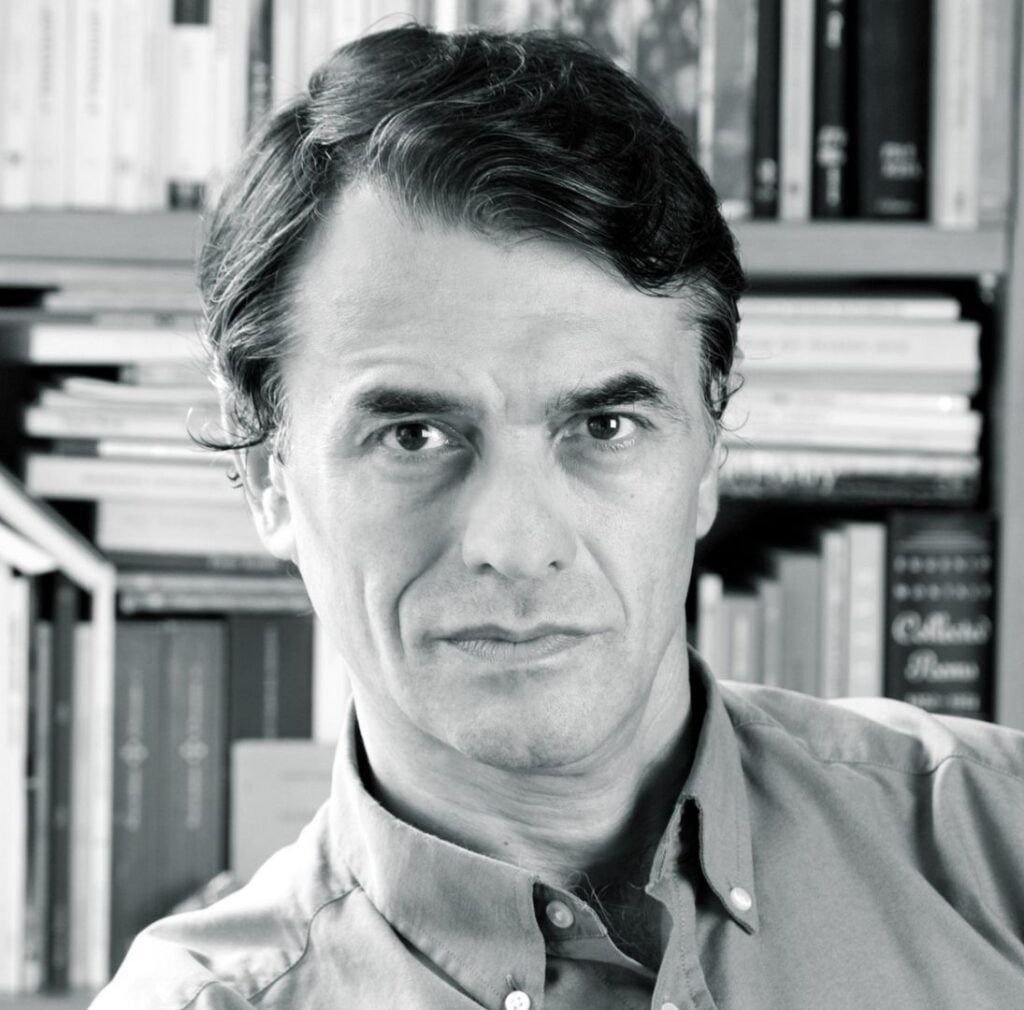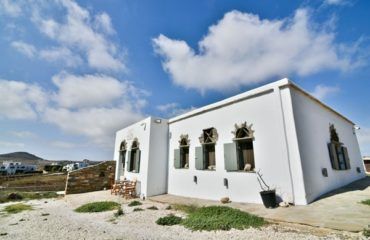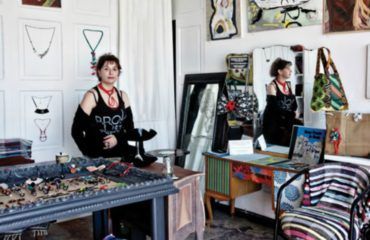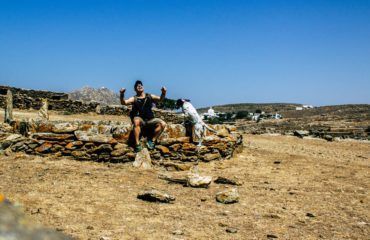A dialogue with Haris Vlavianos about Tinos and the energy of the poetic discourse.
How your relation with Tinos began?
In July of 1997 I decided to go to Tinos for vacations. Following the advice of some friends, I rented a house in Yannaki bay. My daughter that summer was almost three years old and my son was nine and for their sake, I decided to leave for a while (I thought so) the wild sea of Amorgos (the island where I come from) and choose a place with more children-friendly beaches (and for me of course, as I wouldn’t have to carry them on my back all the time). The result of my choice was to discover another paradiso terrestre, equally beautiful and totally fall in love with it –my family as well- and the summer after next we decided to build our own house in Triantaros.
Which is the “best seller” of Tinos?
It is not only one. It depends on time, season, mood. Tinos has many treasures (fortunately, some of them still remain well-hidden) and every visitor or local decides based on his aesthetical preferences which one suits best for him (or even which one he is going to explore).
Favorite spots?
Villages: Triantaros (obviously), Kardiani, Ysternia, Loutra, Agapi, Ktikados, Falatados – but also hours and days when you can enjoy them.
Beaches: Pachia Ammos (after sunset, when the touristic crowd has left), Livada, Lychnaftia, Kalyvia, Agia Thalassa, Kavalourko and many others which I won’t make known.
Which is Tinians’ relation with poetry?
A strong one. Ntinos Siotis (born and bred in the island) organizes every summer in Tinos the very successful International Poetry Festival and Themis Rodamitis Tinos Festival which hosts many poetic events. Through the years, I have presented myself some of my books in various events and the public attendance was great.
Which poem you would dedicate to the island and why?
I have written many poems where the landscape of Tinos (mostly its light) constitutes the main topic or the canvas on which the topic is elaborated. I would distinct the “August Meditations” from my collection “After the end of beauty”. It is going to be republished in the issue of (de)kata which will be an exclusive edition about Tinos. But in many other poems of mine, there are extended references to the island and its people.
Which is your opinion on Tinos Festival?
It is a correct and imaginative initiative. Year by year, it gets more and more prestigious. It can make Tinos one of the most beautiful places where such festivals are held.
What made you get occupied with the art of discourse?
My desire to keep –through the seriousness of the words- something from the constant, sparkling flow of the things that compose my life. As Klee had once said regarding why he paints: “to live one or two days more after I die”.
If I asked you to pick out one sole poem as your favorite, which one it would be?
I don’t have stable loves. These days I love “Autumnal Refrain”, “Vermeer’s poem”, some of the “Sonnets of Despair” and the self-biographical poem that I am writing now and is named “Autobiography of Another”.
Why you have chosen to be occupied with translation as well?
It is a creative work that gives you the opportunity to check the strength and potential of your own language. As you are trying to make the mold where the alien poem will fit, at the same time you explore the limits of your language. And this process is valuable for a poet. It enriches and fertilizes your poetic search. I have learnt a lot from the poets I have translated (some of them I mentioned them before as steady partners) and they have helped process and compose my own poetic plan.
How much easy or difficult is the life of a poet in our country?
It is difficult. The gap between the poet and the reader becomes bigger and bigger in this today’s period of lifestyle. Poetry shrinks in a close universe and, as it is not the prevailing current of literature production, it ends up as an American critic wisely says “a specialized occupation of a rather small and isolated brotherhood of devoted zealots. Very little of the frantic activity that requires, surpasses the limits of the close group. The poets certainly, as a spiritual category, have not completely lost their prestige; like priests in a town of agnostics, they still enjoy some kind of reputation. But like individual creators, they are almost invisible”. Naturally, what surprises us is that poetry retreats the very moment that blossoms in the publishing world. Never again have so many poetic collections been publishing (over 600 yearly!), so many anthologies or philological magazines, so many blogs about poetry. Still, at the same time, the action of poetry which once was outward, today is directs more and more to the inside. Introverted, self-referential, isolated, the poetic field proclaims its celebrities by itself and I am afraid that by its self, it consumes them. Internet has made thing worse, at the same moment when it seems that it gives lead to poetry.
Except for the financial one, we also experience a cultural crisis in Greece?
Certainly. The financial, political, social crisis could not leave culture aside. However, as Sartre once said “French had never been freer than during German occupation”. Just think what happened those years in France, for example, in the fields of literature, philosophy and art. Of course, the same stands for Greece. So, on the one hand crisis distracts us harshly from a spiritual complacency convention and on the other hand, forces us to think more deeply of the human situation. The outcome may be projects of high intuitive power and intensity. Projects that will be part of the literature and art history.
*Haris Vlavianos studied philosophy in Bristol University and political theory in Oxford University. He has published ten poetic books, essays and the humoristic anthology “Britannica” (2004). Also, he has translated works of prestigious writers. He has directed “Poetry” magazine for 15 years while today, he directs “Poetical” (is.1, 2008). Recently, he translated the “Four Quartets” of T.S. Elliot.
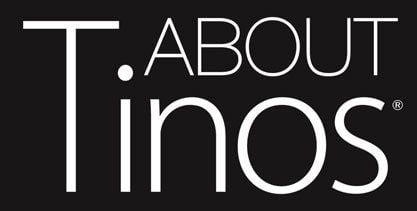

 Ελληνικά
Ελληνικά 